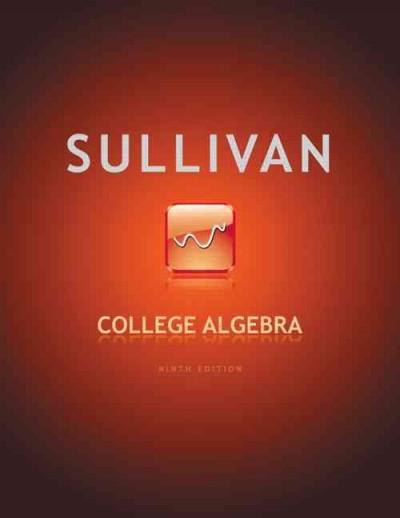Question
1. A well-known brokerage firm executive claimed that 60% of investors are currently confident of meeting their investment goals. An XYZ Investor Optimism Survey, conducted
1. A well-known brokerage firm executive claimed that 60% of investors are currently confident of meeting their investment goals. An XYZ Investor Optimism Survey, conducted over a two week period, found that in a sample of 500 people, 285 of them said they are confident of meeting their goals. Test the claim that the proportion of people who are confident is smaller than 60% at the 0.05 significance level. The null and alternative hypothesis would be:
H0:=0.6H0:=0.6 HA:>0.6HA:>0.6
H0:p=0.6H0:p=0.6 HA:p>0.6HA:p>0.6
H0:p=0.6H0:p=0.6 HA:p<0.6HA:p<0.6
H0:=0.6H0:=0.6 HA:0.6HA:0.6
H0:=0.6H0:=0.6 HA:<0.6HA:<0.6
H0:p=0.6H0:p=0.6 HA:p0.6HA:p0.6
The test statistic is ___________ (to 2 decimals)
The p-value is ___________ (to 4 decimals)
Based on this we:
- Fail to reject the null hypothesis
- Reject the null hypothesis
2. Many investors and financial analysts believe the Dow Jones Industrial Average (DJIA) gives a good barometer of the overall stock market. On January 31, 2006, 9 of the 30 stocks making up the DJIA increased in price (The Wall Street Journal, February 1, 2006). On the basis of this fact, a financial analyst claims we can assume that 30% of the stocks traded on the New York Stock Exchange (NYSE) went up the same day. A sample of 63 stocks traded on the NYSE that day showed that 23 went up.
You are conducting a study to see if the proportion of women over 40 who regularly have mammograms is significantly more than 0.39. You use a significance level of=0.10. H0:p=0.39H0:p=0.39 HA:p>0.39HA:p>0.39 You obtain a sample of sizen=482in which there are 222 successes. What is the test statistic for this sample? (Report answer accurate to three decimal places.) test statistic =____________ You are conducting a study to see if the proportion of stocks that went up is is significantly more than 0.3. You use a significance level of0=0.10.
What is the p-value for this sample? (Report answer accurate to 4 decimal places.) p-value =__________
As such, the final conclusion is that...
- There is sufficient evidence to warrant rejection of the claim that the proportion of stocks that went up is more than 0.3.
- There is not sufficient evidence to warrant rejection of the claim that the proportion of stocks that went up is more than 0.3.
- The sample data support the claim that the proportion of stocks that went up is more than 0.3.
- There is not sufficient sample evidence to support the claim that the proportion of stocks that went up is more than 0.3.
3. You are conducting a study to see if the proportion of women over 40 who regularly have mammograms is significantly more than 0.39. You use a significance level of=0.10. H0:p=0.39H0:p=0.39 HA:p>0.39HA:p>0.39 You obtain a sample of sizen=482in which there are 222 successes. What is the test statistic for this sample? (Report answer accurate to three decimal places.) test statistic =____________
As such, the final conclusion is that...
- There is sufficient evidence to warrant rejection of the claim that the proportion of women over 40 who regularly have mammograms is more than 0.39.
- There is not sufficient evidence to warrant rejection of the claim that the proportion of women over 40 who regularly have mammograms is more than 0.39.
- The sample data support the claim that the proportion of women over 40 who regularly have mammograms is more than 0.39.
- There is not sufficient sample evidence to support the claim that the proportion of women over 40 who regularly have mammograms is more than 0.39.
- 4. Test the claim that the proportion of people who own cats is larger than 60% at the 0.005 significance level. The null and alternative hypothesis would be:
H0:=0.6H0:=0.6 HA:<0.6HA:<0.6
H0:p=0.6H0:p=0.6 HA:p<0.6HA:p<0.6
H0:p=0.6H0:p=0.6 HA:p>0.6HA:p>0.6
H0:=0.6H0:=0.6 HA:0.6HA:0.6
H0:=0.6H0:=0.6 HA:>0.6HA:>0.6
H0:p=0.6H0:p=0.6 HA:p0.6HA:p0.6
5.Nearsighted:It is believed that nearsightedness affects about 8% of all children. In a random sample of 194 children, 21 are nearsighted. (a) Construct hypotheses appropriate for the following question: do these data provide evidence that the 8% value is inaccurate?
- Ho: p = .08 Ha: p .08
- Ho: p = .08 Ha: p < .08
- Ho: p = .08 Ha: p > .08
What is the conclusion of the hypothesis test?=0.1.
- Since p we do not have enough evidence to reject the null hypothesis
- Since p we reject the null hypothesis and accept the alternative
- Since p< we fail to reject the null hypothesis
- Since p we accept the null hypothesis
- Since p< we reject the null hypothesis and accept the alternative
Step by Step Solution
There are 3 Steps involved in it
Step: 1

Get Instant Access to Expert-Tailored Solutions
See step-by-step solutions with expert insights and AI powered tools for academic success
Step: 2

Step: 3

Ace Your Homework with AI
Get the answers you need in no time with our AI-driven, step-by-step assistance
Get Started


